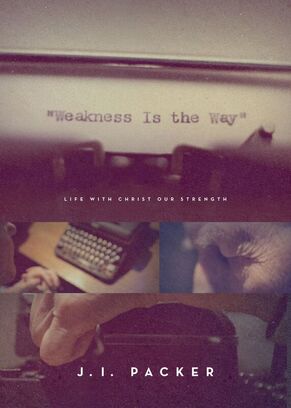|
There was a time in the history of the United States when the decision to have an abortion was not a public debate. Not only was it illegal, but it was such an intimate topic that individuals did not want to draw attention to it. Fast forward to 2020; today, abortion is a public dialog, a political debate, a big business, a freedom to celebrate, and a mother’s choice.
What happened over the last fifty years? Did God have a change of mind about the procedure? Does He feel differently about His command, “You shall not murder” (ESV, Ex 20:13)? The Sixth Commandment prohibits man-slaughter; it illustrates the high priority God places on human life. One human being should not take the life of another human being because God created that life and stamped His own image upon him or her (see: Gen 1:27). As a Christian, I want to live in such a way that I am completely pro-life. God’s image stamped on every human being shapes how I view war, economics, public policy, sexuality, adoption, and abortion. When a person decides to follow Jesus, they cannot afford to put their minds on cruise control. Instead, Christians are thinkers. Every Christian must form a world view that is consistent with their faith in Christ. For me, “Marches for Life” and “Sanctity of Life Sundays” are events that simultaneously bring joy and sorrow. Joy, because God creates and sustains life. He is so good to allow parents the privilege of raising children to His glory. But there is sorrow when I am made aware of the statistics. Since 1973, over 61,628,580 abortion deaths have occurred in the United States according to the National Right to Life website. Think about that number for a minute. The Revolutionary War, the Civil War, World War I and II, Korea and Vietnam produced 1,160,581 horrible deaths of American soldiers. Abortions have taken over five times more human lives! One of my favorite Psalms by King David is Psalm 139:13-16. For you formed my inward parts; you knitted me together in my mother’s womb. I praise you, for I am fearfully and wonderfully made. Wonderful are your works; my soul knows it very well. My frame was not hidden from you, when I was being made in secret, intricately woven in the depths of the earth. Your eyes saw my unformed substance; in your book were written, every one of them, the days that were formed for me, when as yet there was none of them. This has to be one of the greatest passages in all of literature about the miracle of the conception and birth of a human being. David makes it clear that God is present during every person’s prenatal formation. He makes every person in His image and gives him or her a particular purpose for life. Will you join with me in prayer to end the horrible practice of abortion? Will you pray for the mothers who are making the tough decision to carry their babies to full-term? Will you pray that the slick advertising of those trying to bring harm to pre-born children in the womb will end? Will you pray that everyone will value life over personal freedom of choice, over political inclination, and the pursuit of self-centered purposes.
0 Comments
 I just read a marvelous little book by J.I. Packer called Weakness Is the Way: Life with Christ Our Strength. It is easy to read and applicable to life. He leads the reader through a study in First and Second Corinthians. In these to Bible letters, the Apostle Paul speaks of weakness—his weakness and even the weakness of Christ. Each time he said, “My grace is all you need. My power works best in weakness.” So now I am glad to boast about my weaknesses, so that the power of Christ can work through me. That’s why I take pleasure in my weaknesses, and in the insults, hardships, persecutions, and troubles that I suffer for Christ. For when I am weak, then I am strong. (NLT, 2 Co 12:9–10). Although he was crucified in weakness, he now lives by the power of God. We, too, are weak, just as Christ was, but when we deal with you, we will be alive with him and will have God’s power. (NLT, 2 Co 13:4). We live in a culture that banks on power and strength. From childhood on, we want our children to grow strong and self-reliant. But Paul says that in our self-assurance, we lose sight of our real strength—Jesus Christ. Packer reflected on a humorous Peanuts cartoon when Lucy asked a gloomy-looking Charlie Brown what he was worried about. Charlie answered, “I feel inferior.” “Oh,” said Lucy, “you shouldn’t worry about that. Lots of people have that feeling.” “What, that they’re inferior?” Charlie asked. “No,” Lucy replied, “that you’re inferior” (14). The perception of being weak, which everyone feels at times, leads to feelings of inferiority, which Packer calls the Charlie Brown syndrome. We can feel worthlessness and wonder what benefit we bring to our families and churches. “Original sin in the form of pride, ambitious independence, and deep-level egocentricity has infected everyone, we all crave to be admired for strength in something, and the expectation that it is not going to happen makes one feel like a punctured balloon and plants bitterness in one’s heart,” says Packer (50). When we discover the fact that we really are weak, Packer advises that we LOOK to Christ as the “loving Sin-Bearer and living Lord.” When we receive Him a Savior and make Him Master of our lives, we can legitimately leave behind our self-pity and feelings of failure. Then we can LOVE Christ, find our worth in pleasing him with our lives instead of looking to others for their approval. Consequently, we can say with the Apostle Paul, “As for me, it matters very little how I might be evaluated by you or by any human authority. I don’t even trust my own judgment on this point. My conscience is clear, but that doesn’t prove I’m right. It is the Lord himself who will examine me and decide” (NLT, 1 Co 4:3–4). How freeing it is to depend on Christ for our commendation, not other people or even ourselves. Lastly, Packer says we should learn to LEAN on Christ and rely on him to supply through the Holy Spirit all the strength we need to serve Him. As Christians, we have the power of the Holy Spirit in us to do God’s work. Why would we even bother relying on our own strength when He who is stronger wants us to lean into Him? I want to encourage you to take a look at J.I. Packer’s excellent work. I know you won’t be sorry. Packer, J. I. Weakness Is the Way: Life with Christ Our Strength. Wheaton, IL: Crossway, 2013. Print. Last year, Reader’s Digest created a list of the best places to live in America. Can you believe one of the sites found on the list is located in the Bronx? Harding Park is a blue-collar neighborhood on the East River in New York City’s Bronx borough. The neighbors are friendly and “crimes of compassion” occur regularly. After snowstorms, folks anonymously shovel the sidewalks of their neighbors. On garbage collection days, one neighbor will carry another neighbors trash cans back up the driveway to the backdoor. Gardeners share their produce with their neighbors, many times without taking credit for the vegetables they leave on the doorstep. It’s like crime in reverse. Everyone tries to outdo the good deeds their neighbors do for them.
My daily Bible reading has me in the Gospel of Matthew right now. “So whatever you wish that others would do to you, do also to them, for this is the Law and the Prophets” (Matthew 7:12, ESV). The “Golden Rule” can be found in one form or another in a myriad of religions. Most of these religions state the rule in the negative: “Do not do to others what you don’t like them doing to you.” Jesus expresses it in the positive. Those who follow Jesus should eagerly do good to others. The good that the followers of Christ do is not dependent on other people returning the favor. Instead, we should look to serve others when we are not noticed—even doing good to our enemies: “But love your enemies, and do good, and lend, expecting nothing in return, and your reward will be great, and you will be sons of the Most High, for he is kind to the ungrateful and the evil” (Luke 6:35, ESV) and “See that no one repays anyone evil for evil, but always seek to do good to one another and to everyone” (1 Thessalonians 5:15, ESV). The Christian life is not easy, is it? Why should we actively pursue doing good for others? Because that is how God treats us. In the passage before the “Golden Rule” text, Jesus says, “Ask, and it will be given to you; seek, and you will find; knock, and it will be opened to you. For everyone who asks receives, and the one who seeks finds, and to the one who knocks it will be opened. Or which one of you, if his son asks him for bread, will give him a stone? Or if he asks for a fish, will give him a serpent? If you then, who are evil, know how to give good gifts to your children, how much more will your Father who is in heaven give good things to those who ask him!” (Matthew 7:7–11, ESV). Can it be that we have the privilege as children of God to imitate our Heavenly Father? Let’s not miss that critical fact, sons and daughters of God look like their Father. We live differently from the “norm” because God is transforming us through the Holy Spirit into something better. So, let us do what the Apostle Paul encourages: “They are to do good, to be rich in good works, to be generous and ready to share, thus storing up treasure for themselves as a good foundation for the future, so that they may take hold of that which is truly life” (1 Timothy 6:18–19, ESV). Leon Morris, The Gospel according to Matthew, The Pillar New Testament Commentary, (Grand Rapids, MI; Leicester, England: W.B. Eerdmans; Inter-Varsity Press, 1992), 172. Lydia Clark-Sumpter, “The Nicest Place in New York: Harding Park in the Bronx.” Reader's Digest, (Trusted Media Brands, Inc., 2019), www.rd.com/nicestplaces/the-nicest-place-in-new-york-harding-park-in-the-bronx/. As we begin a new year at Blainsport, we will focus our attention on the Book of Esther. When we think of the book, our minds go to the fact that it never mentions God’s name. Despite the absence of His name, it is clear that God orchestrated all the events that take place. Sometimes it is hard to understand how God works in life’s messy situations, even using brokenness to bring about His good plan. The Book of Esther keeps reminding us that God is working even when we don’t see Him at work.
During this series, we will be singing the Michael W. Smith song “Waymaker.” It precisely emphasizes what is going on in Esther and most likely in many of our lives. I trust that God will encourage you in your faith journey as we study these passages together. Jon Wenrich will kick off the series this Sunday with his message “When You Can’t See the Way” from Esther 2:1-18. As you see, we will jump in at chapter two. Feel free to look at Esther 1:1-22 before Sunday; it lays the background for the message. Another reminder as we begin 2020—it is a year of generosity. With our financial commitments to the Declaration House and EMM, we want to steward our resources well from the start. Your generous giving will give us the kick start we need to bless these ministries. Really, they serve as an extension of our ministry as a congregation. Needs are being met and lives are impacted as we partner with these ministries and other churches to extend the Kingdom of God right in our “hometown.” I pray that we will find joy in our giving and that God will do mighty things as a result. I look forward to seeing you all on Sunday. |
Eric MarshallBorn in Reading, Pennsylvania, Eric grew up in the little town of Gibraltar, PA with his grandparents. He met his wife Cheryl while working at Good’s Greenhouse in Bowmansville, PA. He has three adult children and values watching them grow into the people God wants them to be. Archives
August 2023
Categories |


 RSS Feed
RSS Feed